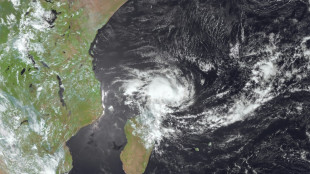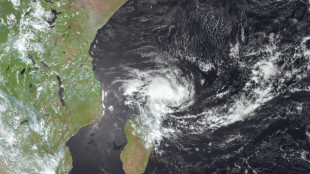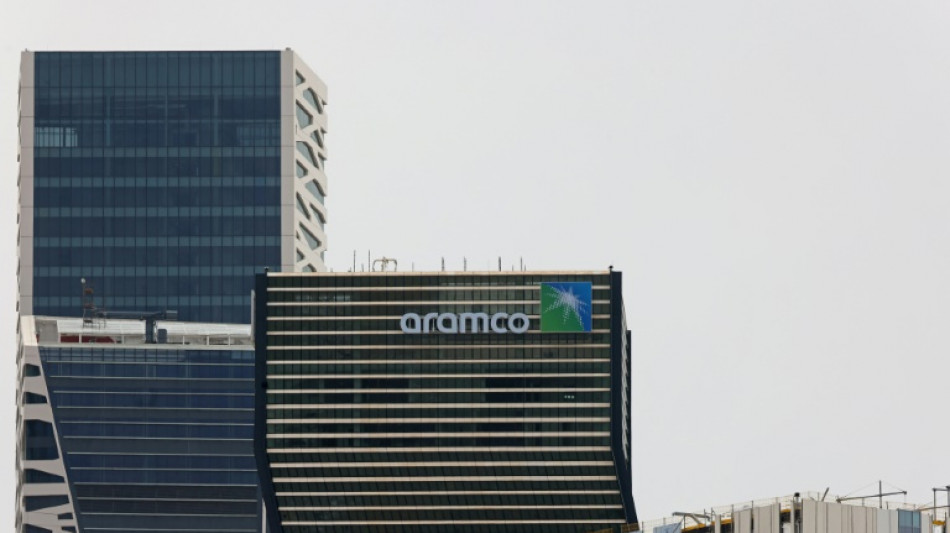
-
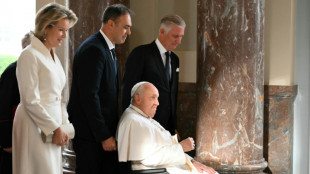 Pope Francis bruises arm in fall at Vatican
Pope Francis bruises arm in fall at Vatican
-
Arsenal optimistic in Premier League title race: Raya

-
 EU announces 120 mn euros in Gaza aid after ceasefire
EU announces 120 mn euros in Gaza aid after ceasefire
-
Patients dying in corridors as UK hospital standards 'collapse': report
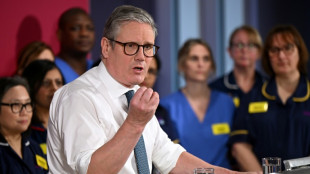
-
 Sinner roars back in Melbourne as Swiatek sets up Raducanu clash
Sinner roars back in Melbourne as Swiatek sets up Raducanu clash
-
'Nervous' teen star Fonseca out of Australian Open after thriller

-
 Nepal's top court bars infrastructure in protected areas
Nepal's top court bars infrastructure in protected areas
-
Stock markets jump as inflation worries ease

-
 Sinner drops rare set en route to Australian Open third round
Sinner drops rare set en route to Australian Open third round
-
China to probe US chips over dumping, subsidies

-
 Israel accuses Hamas of backtracking on fragile ceasefire deal
Israel accuses Hamas of backtracking on fragile ceasefire deal
-
Chinese apps including TikTok hit by privacy complaints in Europe

-
 Blasts in Kyiv as UK's Starmer visits to ink '100-year' accord
Blasts in Kyiv as UK's Starmer visits to ink '100-year' accord
-
Hong Kong mogul Jimmy Lai grilled over US, Taiwan ties

-
 Pakistan, West Indies seek to improve from Test Championship lows
Pakistan, West Indies seek to improve from Test Championship lows
-
Trauma and tragedy in the City of Angels: covering the LA fires

-
 Spain raises flag at Damascus embassy after 12-year closure
Spain raises flag at Damascus embassy after 12-year closure
-
Teen star Fonseca out of Australian Open in five-set thriller

-
 Travel agencies say North Korea reopens border city to tourism
Travel agencies say North Korea reopens border city to tourism
-
India's outcast toilet cleaners keeping Hindu festival going

-
 Apple loses top spot in China smartphone sales to local rivals
Apple loses top spot in China smartphone sales to local rivals
-
Sri Lanka signs landmark $3.7 bn deal with Chinese state oil giant

-
 'I had 10 minutes': Lys makes most of Australian Open second chance
'I had 10 minutes': Lys makes most of Australian Open second chance
-
Spanish FM raises flag at Damascus embassy after 12-year closure

-
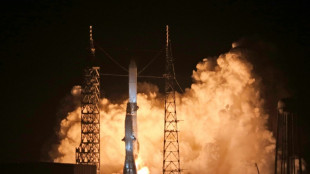 Blue Origin's New Glenn rocket blasts into orbit for first time
Blue Origin's New Glenn rocket blasts into orbit for first time
-
UK economy rebounds but headwinds remain for govt

-
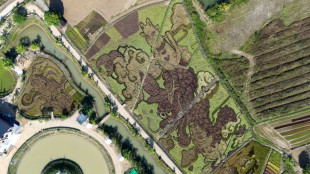 Rice fields turned into art in northern Thailand
Rice fields turned into art in northern Thailand
-
Stocks follow Wall St higher on welcome US inflation data

-
 South Korea's president arrest: what happens next?
South Korea's president arrest: what happens next?
-
Blue Origin's New Glenn rocket blasts off in first launch, reaches orbit
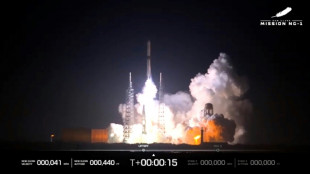
-
 Chinese give guarded welcome to spending subsidies
Chinese give guarded welcome to spending subsidies
-
World Bank plans $20 bn payout for Pakistan over coming decade

-
 Indian Bollywood star Saif Ali Khan stabbed in burglary
Indian Bollywood star Saif Ali Khan stabbed in burglary
-
Taiwan's TSMC says net profit rose 57% in fourth quarter

-
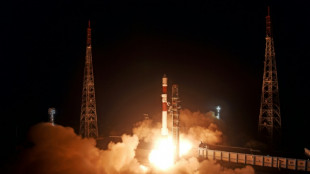 India achieves 'historic' space docking mission
India achieves 'historic' space docking mission
-
South Korea's Yoon avoids fresh questioning after dramatic arrest

-
 Olympic push for kho kho, India's ancient tag sport
Olympic push for kho kho, India's ancient tag sport
-
Dangerous Fritz sets up Monfils clash at Australian Open

-
 AFP photographer's search for his mother in the Nazi camps
AFP photographer's search for his mother in the Nazi camps
-
Life after the unthinkable: Shoah survivors who began again in Israel

-
 Israeli cabinet to vote on Gaza ceasefire deal
Israeli cabinet to vote on Gaza ceasefire deal
-
Jabeur finds it 'hard to breathe' as asthma flares up in Melbourne

-
 Swiatek powers on as Sinner, Medevedev top men's Melbourne bill
Swiatek powers on as Sinner, Medevedev top men's Melbourne bill
-
Nintendo rumour mill in overdrive over new Switch

-
 Biden warns of Trump 'oligarchy' in dark farewell speech
Biden warns of Trump 'oligarchy' in dark farewell speech
-
Superb Swiatek sets up Raducanu showdown at Australian Open

-
 Asian stocks follow Wall St higher on welcome US inflation data
Asian stocks follow Wall St higher on welcome US inflation data
-
Toyota arm Hino makes deal to settle emission fraud case

-
 Fire-wrecked Los Angeles gets a break as winds drop
Fire-wrecked Los Angeles gets a break as winds drop
-
Superb Swiatek races into third round at Australian Open


Saudi Aramco Q2 profits drop 38% on lower prices: statement
Oil firm Saudi Aramco on Monday announced profits of $30.08 billion for the second quarter, a sharp fall from the same period last year when prices surged after Russia invaded Ukraine.
The 38 percent year-on-year decline "mainly reflected the impact of lower crude oil prices and weakening refining and chemicals margins," the largely state-owned company said in a statement published on the Saudi stock exchange.
The decline followed a drop of 19.25 percent in first-quarter net profit.
"Our strong results reflect our resilience and ability to adapt through market cycles," CEO Amin Nasser said.
"We continue to demonstrate our long-standing ability to meet the needs of customers around the world with high levels of reliability," Nasser said, announcing the timing of an additional dividend.
"For our shareholders, we intend to start distributing our first performance-linked dividend in the third quarter," he said.
Production from the world's biggest crude exporter was down after Riyadh in April announced cuts of 500,000 barrels per day, part of a coordinated move with other oil powers to slash supply by more than one million bpd in a bid to prop up prices.
In June, the Saudi energy ministry announced a further voluntary cut of one million bpd which took effect in July and has been extended through September.
The kingdom's daily production is now approximately nine million bpd, far below its reported daily capacity of 12 million bpd.
Aramco is the main source of revenue for Crown Prince Mohammed bin Salman's sweeping economic and social reform programme known as Vision 2030, which aims to shift the economy away from fossil fuels.
Analysts say the kingdom needs oil to be priced at around $80 per barrel to balance its budget.
Prices are now above that threshold, a sign that the recent supply cuts are starting to have the desired effect.
The US benchmark West Texas Intermediate crude for September delivery traded Monday at $82.54 and European benchmark Brent crude futures were just below $86.
Following Russia's invasion of Ukraine in February 2022, oil peaked at more than $130 dollars per barrel.
- 'Phenomenal figures' -
The cuts "show the lengths to which the kingdom will go to defend oil prices, as a slumping market for its lifeblood commodity is damaging to its ambitious economic diversification efforts," said Herman Wang, associate director for oil news at S&P Global Commodity Insights.
Aramco is undertaking investments to ramp up national production capacity to 13 million bpd by 2027.
"It's an expensive proposition for Aramco to hold production capacity offline in the name of OPEC+ cuts, but the hope is that the sacrifice being made now will pay off in the end with higher prices," Wang said, referring to the Organization of the Petroleum Exporting Countries, headed by Riyadh, and their 10 allies led by Moscow.
Aramco reported record profits totalling $161.1 billion last year, allowing the kingdom to notch up its first annual budget surplus in nearly a decade.
Yet those "were phenomenal figures driven by a very particular set of geopolitical factors and Saudi Arabia's leadership can't have been predicating Vision 2030 spending on such results," said Jamie Ingram, senior editor at the Middle East Economic Survey (MEES).
"Higher revenues would of course be favoured by officials, but Saudi Arabia still has very low debt levels and strong reserves that it can tap into," the expert said.
Saudi Arabia owns 90 percent of Aramco's shares.
In December 2019, the firm floated 1.7 percent of its shares on the Saudi bourse, generating $29.4 billion in the world's biggest initial public offering.
In mid-April, Saudi Arabia announced it was transferring a four percent chunk of Aramco shares, worth nearly $80 billion, to Sanabil Investments, a firm controlled by the kingdom's Public Investment Fund (PIF), one of the world's biggest sovereign wealth funds with more than $620 billion in assets.
An earlier transfer of four percent of Aramco shares last year went directly to the PIF.
L.Miller--AMWN

